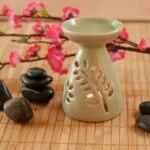Aromatherapy is a holistic healing treatment that uses natural plant extracts to promote health and well-being. The practice has been utilized for centuries and is becoming increasingly popular in healthcare settings due to its potential benefits. Many hospitals are exploring the incorporation of aromatherapy into their patient care practices, but the question remains: do hospitals need FDA approval for aromatherapy products?
Aromatherapy involves the use of essential oils and aromatic compounds to enhance psychological and physical well-being. It can be administered through inhalation, topical application, or ingestion (in some cases). The potential benefits of aromatherapy in healthcare settings include stress reduction, improved sleep, pain management, and enhanced patient experience.
As hospitals consider incorporating aromatherapy into their facilities, a key consideration is the role of the FDA in regulating these products. The FDA has specific requirements for approving and regulating aromatherapy products, and hospitals must adhere to safety regulations when using these products in patient care. This article will explore the FDA approval process for aromatherapy products and the specific safety regulations that hospitals must follow when implementing aromatherapy treatments.
FDA Approval Process
Aromatherapy has gained popularity in healthcare settings for its potential benefits in reducing stress, improving patient experience, and promoting overall well-being. However, the use of aromatherapy products in hospitals raises the question: do hospitals need FDA approval for aromatherapy? Understanding the FDA approval process and the regulations surrounding aromatherapy products is essential for hospitals considering incorporating these practices into their patient care.
Role of the FDA in Regulating Aromatherapy Products
The Food and Drug Administration (FDA) plays a crucial role in ensuring the safety and efficacy of medical products, including those used in aromatherapy. The FDA regulates aromatherapy products as a type of cosmetic or over-the-counter drug, depending on their intended use and claims. This means that certain aromatherapy products may require FDA approval before they can be used in hospital settings.
Requirements for Approval
In order to obtain FDA approval for aromatherapy products, manufacturers must provide evidence to support the safety and effectiveness of their products. This includes conducting clinical trials and submitting detailed information about the product’s ingredients, manufacturing process, and intended use. Additionally, labeling and marketing materials must comply with FDA regulations to ensure accurate representation of the product’s benefits and risks.
Evaluating Safety and Efficacy
The FDA evaluates each aromatherapy product on a case-by-case basis to determine whether it meets the necessary safety and efficacy standards. While not all aromatherapy products require formal FDA approval, hospitals should carefully consider the regulatory status of the products they choose to incorporate into patient care to ensure compliance with safety regulations.
Hospital Safety Regulations
Aromatherapy has been increasingly recognized as a beneficial practice in healthcare settings, with numerous potential advantages for patients and staff. However, the use of aromatherapy in hospitals is subject to specific safety and regulatory standards. Hospital safety regulations are in place to ensure that any products or practices used within healthcare facilities are safe and effective for patient care.
Role of FDA Approval
The Food and Drug Administration (FDA) plays a crucial role in regulating aromatherapy products used in healthcare settings. Aromatherapy products, such as essential oils and diffusers, fall under the category of medical devices or over-the-counter drugs, depending on their intended use. As such, these products may require FDA approval before being used in hospitals. The approval process involves demonstrating the safety and efficacy of the product through clinical testing and quality control measures.
Hospital Requirements for Aromatherapy Use
In addition to FDA approval, hospitals must adhere to specific safety regulations when incorporating aromatherapy into their patient care practices. This includes ensuring that aromatherapy products meet industry standards for purity and potency, as well as implementing proper storage and usage protocols to prevent contamination or misuse. Hospitals may also be required to provide staff training on aromatherapy practices to ensure safe and effective implementation.
Ensuring Patient Safety
The primary concern with using aromatherapy in hospitals is the safety of patients. Allergic reactions, irritations, or adverse effects from exposure to essential oils are potential risks that must be carefully considered. Therefore, hospitals need to establish clear guidelines for assessing patient suitability for aromatherapy and monitoring any adverse reactions that may occur. Additionally, proper ventilation systems should be in place to minimize the risk of overpowering scents or airborne irritants that could affect patients with respiratory conditions.
Benefits of Aromatherapy in Hospitals
Aromatherapy has gained popularity in healthcare settings for its potential benefits in promoting relaxation and overall well-being. In hospitals, the use of essential oils and aromatherapy products has been shown to have a positive impact on patients, staff, and visitors.
One of the main advantages of incorporating aromatherapy into hospital settings is its ability to reduce stress and anxiety levels. The soothing scents of essential oils can create a calming environment, which can be particularly beneficial for patients undergoing medical procedures or facing challenging health conditions.
Furthermore, aromatherapy has been linked to improved patient experience in hospitals. The use of pleasant fragrances can help create a more inviting and comfortable atmosphere, contributing to a more positive overall experience for individuals receiving medical care. In addition, the implementation of aromatherapy techniques may also enhance the perception of cleanliness within healthcare facilities, as certain essential oils possess natural antimicrobial properties.
Research studies have demonstrated that aromatherapy may have a range of potential clinical benefits, including pain reduction, improved sleep quality, and decreased agitation among patients with dementia. These findings suggest that the integration of aromatherapy into hospital practices could support holistic approaches to patient care and contribute to better overall health outcomes.
| Potential Benefits | Examples |
|---|---|
| Stress Reduction | Essential oils like lavender and chamomile have been shown to promote relaxation. |
| Improved Patient Experience | Aromatherapy can create a more comforting environment for patients undergoing treatment. |
| Clinical Benefits | Studies have suggested that aromatherapy may aid in pain management and improve sleep quality. |
As hospitals seek to provide comprehensive care for their patients, many healthcare facilities are considering the integration of complementary therapies such as aromatherapy into their services. However, despite the potential advantages of utilizing essential oils in hospitals, it is important to consider safety regulations and any necessary approvals from regulatory bodies such as the FDA. This leads to the question: do hospitals need FDA approval for aromatherapy products?
The role of regulatory agencies like the FDA in overseeing the safety and efficacy of healthcare products is crucial in ensuring that patients receive high-quality care. While essential oils themselves are generally not subject to FDA approval as they are considered cosmetics or dietary supplements rather than drugs, certain aromatherapy devices or equipment used in healthcare settings may require specific clearances or approvals.
It is vital for hospitals to adhere to regulatory standards when implementing aromatherapy practices in order to prioritize patient safety and well-being.
Risks and Concerns
Aromatherapy, the practice of using natural plant extracts to promote health and well-being, has gained popularity in healthcare settings for its potential therapeutic benefits. However, the use of aromatherapy in hospitals raises questions about safety and regulation. One of the main concerns is whether hospitals need FDA approval for aromatherapy products used on their premises.
The FDA does not regulate essential oils or other natural substances commonly used in aromatherapy. However, if an aromatherapy product is intended for a therapeutic purpose or to treat or prevent disease, it may be classified as a drug and require FDA approval. This means that hospitals should exercise caution when using aromatherapy products that make specific health claims or are marketed to treat medical conditions.
In addition to the lack of FDA oversight, there are other risks associated with using aromatherapy in hospitals. Allergic reactions and skin irritation can occur when essential oils are applied directly to the skin or dispersed into the air.
Some individuals may also experience respiratory issues or other adverse effects from exposure to certain essential oils. Therefore, it is crucial for hospitals to carefully consider the potential risks and take appropriate measures to ensure the safe use of aromatherapy in patient care practices.
| Concern | Risk |
|---|---|
| Allergic Reactions | Skin irritation, respiratory issues |
| Adverse Effects | Possible negative reactions to specific essential oils |
Case Studies
Aromatherapy has been increasingly recognized as a complementary therapy in healthcare settings, including hospitals, due to its potential benefits for patients and staff. Some hospitals have successfully incorporated aromatherapy into their patient care practices, leading to positive outcomes and improved experiences for individuals receiving medical treatment. Here are some real-life examples of hospitals that have implemented aromatherapy effectively:
1. Cleveland Clinic: The Cleveland Clinic, a renowned hospital in the United States, has integrated aromatherapy into various aspects of patient care. They offer aromatherapy services in their wellness center and have also introduced essential oils in certain hospital areas to promote relaxation and stress reduction for patients.
2. University of Michigan Health System: This healthcare institution has embraced the use of aromatherapy as part of their integrative medicine approach. They have specially trained nurses who administer essential oils to patients based on their individual needs, such as pain management or anxiety reduction.
3. Vanderbilt University Medical Center: This medical center has implemented an aromatherapy program that provides customized aromatic blends to patients during procedures and appointments, aiming to enhance their overall experience and well-being while in the hospital.
4. Mount Sinai Hospital: Located in New York City, Mount Sinai Hospital has incorporated aromatherapy as part of their holistic care approach. They offer aromatherapy sessions for cancer patients as a supportive therapy to help manage symptoms and improve quality of life during treatment.
These case studies demonstrate the successful integration of aromatherapy into hospital settings, showcasing its potential to enhance patient comfort and well-being. While these examples highlight the positive outcomes associated with using aromatherapy in healthcare facilities, it is important to consider the regulatory aspects related to its implementation.
– Should also comply with FDA approval processes for ensuring the quality and safety of the products used within healthcare institutions.
Future Implications
Aromatherapy has gained popularity in healthcare settings for its potential benefits in promoting relaxation, reducing stress, and improving the overall patient experience. As hospitals continue to explore non-pharmacological interventions for patient care, the future implications of incorporating aromatherapy into healthcare practices are vast. Ongoing research and developments in the field suggest that aromatherapy could become more widely utilized in various medical settings, offering a more holistic approach to patient care.
In the future, aromatherapy may become an integral part of patient-centered care in hospitals. Research studies have shown promising results in using essential oils to alleviate symptoms related to pain management, nausea, anxiety, and insomnia among patients. Additionally, ongoing developments in aromatherapy techniques and applications are aimed at addressing specific healthcare needs, such as palliative care and mental health support.
Furthermore, advancements in technology have led to innovations in aromatherapy delivery methods, making it easier for healthcare providers to administer aromatherapy treatments safely and effectively. This includes the development of diffusers with precise control over essential oil dispersion, as well as methods for personalized scent blends to cater to individual patient preferences. These advancements are shaping the future of aromatherapy use in hospitals and other medical facilities.
- Ongoing research into the efficacy of aromatherapy
- Development of standardized protocols for incorporating aromatherapy into healthcare settings
- Advancements in technology for safe and effective administration of aromatherapy treatments
Overall, the potential future of aromatherapy in healthcare is promising. As research continues to demonstrate its effectiveness in improving patient outcomes, hospitals may increasingly integrate aromatherapy into their standard care practices – pending FDA approval – as an alternative or complementary therapy option for patients.
Conclusion
In conclusion, the debate over whether hospitals need FDA approval for aromatherapy products in their facilities is a complex one. While the FDA does not directly regulate the practice of aromatherapy itself, the use of aromatherapy products in hospital settings falls under the agency’s jurisdiction. This means that hospitals should carefully consider the FDA approval process when selecting and using aromatherapy products to ensure patient safety and compliance with regulations.
Ultimately, the decision of whether hospitals need FDA approval for aromatherapy products may depend on various factors, including the specific products being used, the intended purpose of their use, and the overall risk assessment. It is essential for hospitals to prioritize patient safety and well-being by conducting thorough research and adhering to proper regulatory standards when incorporating aromatherapy into their healthcare practices.
Moving forward, continued research and developments in the field of aromatherapy may lead to clearer guidelines and regulations regarding its use in healthcare settings. As more evidence emerges regarding its potential benefits and risks, hospitals will likely benefit from updated recommendations and best practices for integrating aromatherapy into patient care.
Ultimately, while FDA approval for aromatherapy in hospitals may not be a strict requirement at present, it is crucial for healthcare facilities to approach its use with caution and adhere to all necessary safety regulations.
Frequently Asked Questions
Is Aromatherapy Regulated by the FDA?
Aromatherapy itself is not regulated by the FDA, as it is considered a form of alternative medicine. However, certain aspects of aromatherapy, such as the marketing and labeling of essential oils, may be regulated by the FDA.
Do I Need FDA Approval to Sell Essential Oils?
Generally, you do not need FDA approval to sell essential oils. However, you are responsible for ensuring that your products are safe, properly labeled, and in compliance with any relevant regulations or requirements set forth by the FDA.
Are Diffusers Allowed in Hospitals?
The use of diffusers in hospitals is usually allowed, but it ultimately depends on the specific policies and preferences of each individual hospital. Some hospitals may have restrictions on the use of diffusers due to potential sensitivities or allergies among patients and staff.

Are you looking for a natural way to improve your health and wellbeing?
If so, aromatherapy may be the answer for you.




